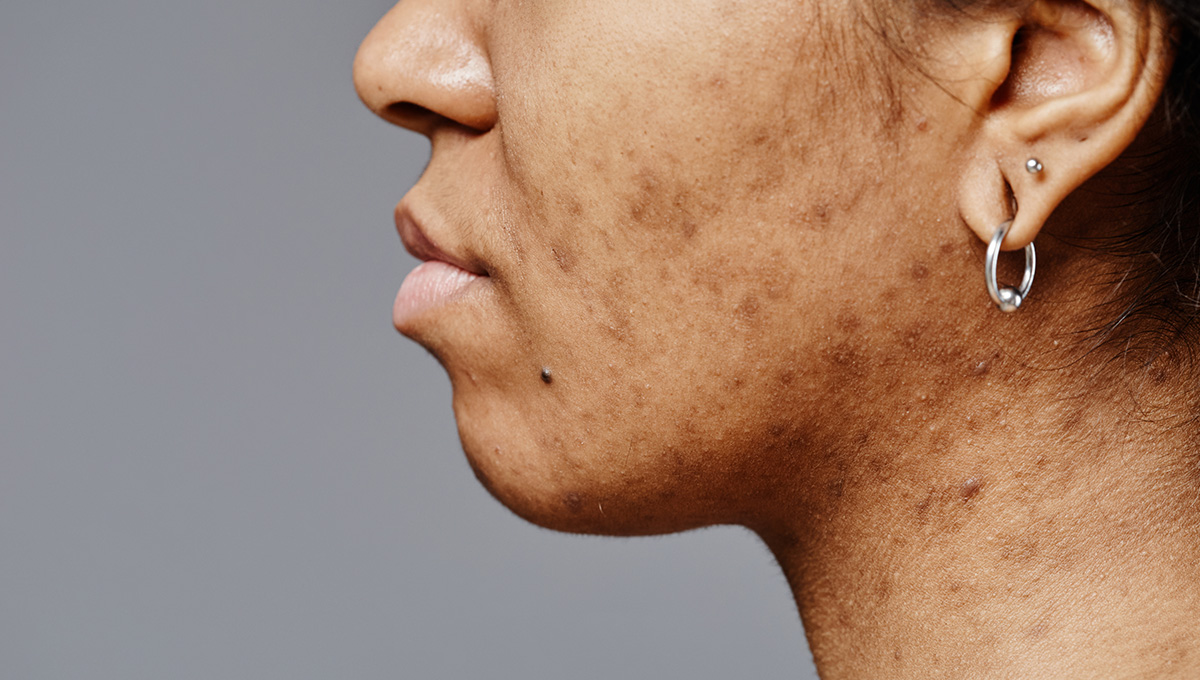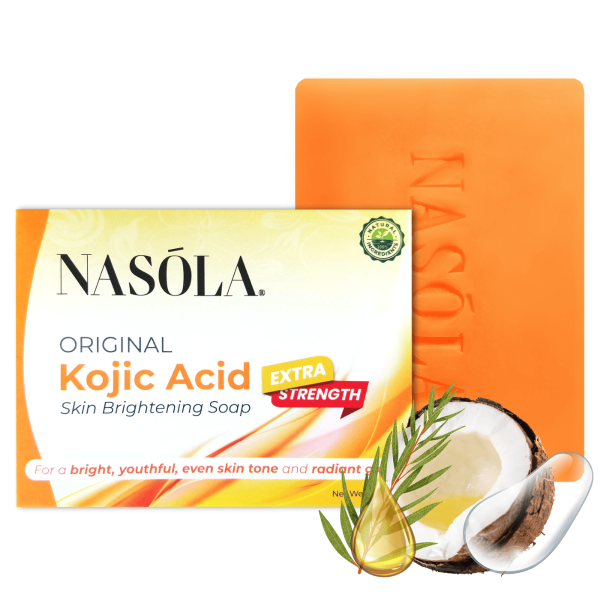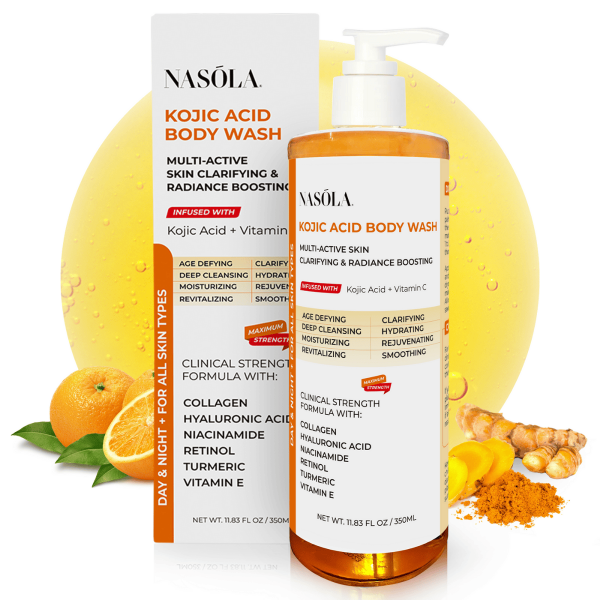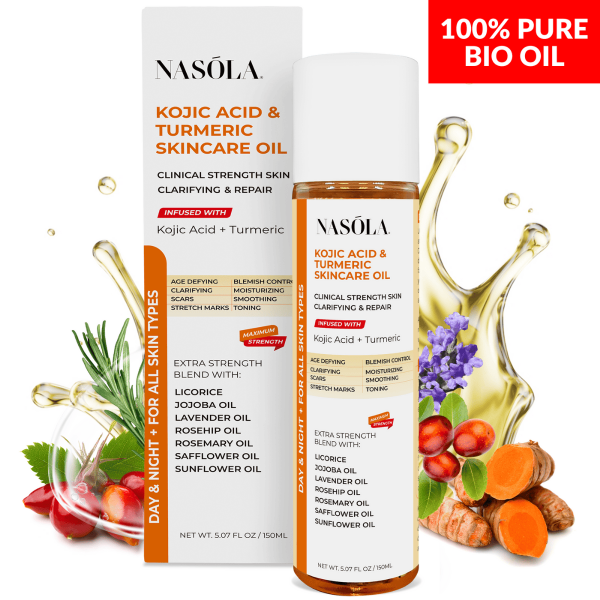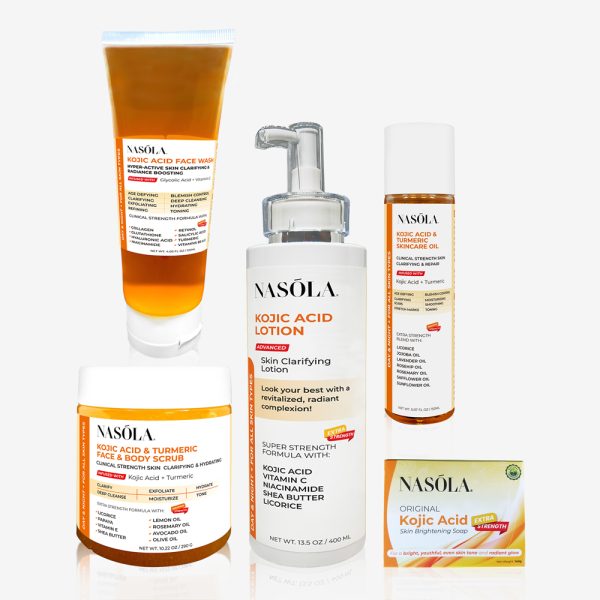Hyperpigmentation on Black skin is a persistent concern that affects many individuals due to higher melanin production.
Those stubborn dark spots from acne scars, sun exposure, or hormonal changes can feel impossible to fade. But here’s the good news—there are effective treatments that work with your skin, not against it.
In this post, we’ll cover dermatologist-approved treatments, natural solutions, and the best skincare products to help you achieve a brighter, more even complexion.
Let’s get into it!
Hyperpigmentation Treatment for Black Skin

Treating hyperpigmentation on Black skin requires a tailored approach that considers melanin-rich skin’s unique needs. First, let’s explore what causes discoloration and highlight dermatologist-approved treatments designed to safely and effectively restore an even, radiant complexion.
Understanding Hyperpigmentation in Black Skin
Dark spots appear when melanin—the pigment responsible for skin color—produces excessively in certain areas. Black skin is more susceptible to hyperpigmentation due to this natural process.
Several common triggers can lead to this condition, including:
- Acne scars that leave behind post-inflammatory pigmentation.
- Sun exposure, which worsens existing dark spots.
- Eczema and other skin injuries that cause discoloration.
- Hormonal changes from pregnancy or birth control use.
By understanding the root causes, you can take the right steps to prevent and treat hyperpigmentation effectively.
Dermatologist-Approved Treatments
Many professional treatments help fade hyperpigmentation safely.
- Chemical Peels: These remove the top layer of skin to improve tone and texture over time.
- Microdermabrasion: A minimally invasive procedure that exfoliates and renews skin cells.
- Prescription Solutions: Dermatologists often recommend hydroquinone, retinoids, or azelaic acid to lighten dark spots.
- Sun Protection: Daily sunscreen application prevents hyperpigmentation from worsening and supports treatment results.
For long-term success, professional treatments should be combined with a consistent skincare routine.
Topical Products to Fade Hyperpigmentation
One of the most effective ingredients for fading dark spots is kojic acid. It inhibits melanin production, making it an excellent solution for brightening skin.
Nasola Kojic Acid Soap
- Contains kojic acid to gently lighten dark spots and even skin tone.
- Exfoliates dead skin, revealing a smoother, brighter complexion.
- Perfect for daily use to maintain an even skin tone.
A simple step like switching to kojic acid soap can help reduce hyperpigmentation with consistent use.
Hyperpigmentation Treatment for Black Skin Naturally
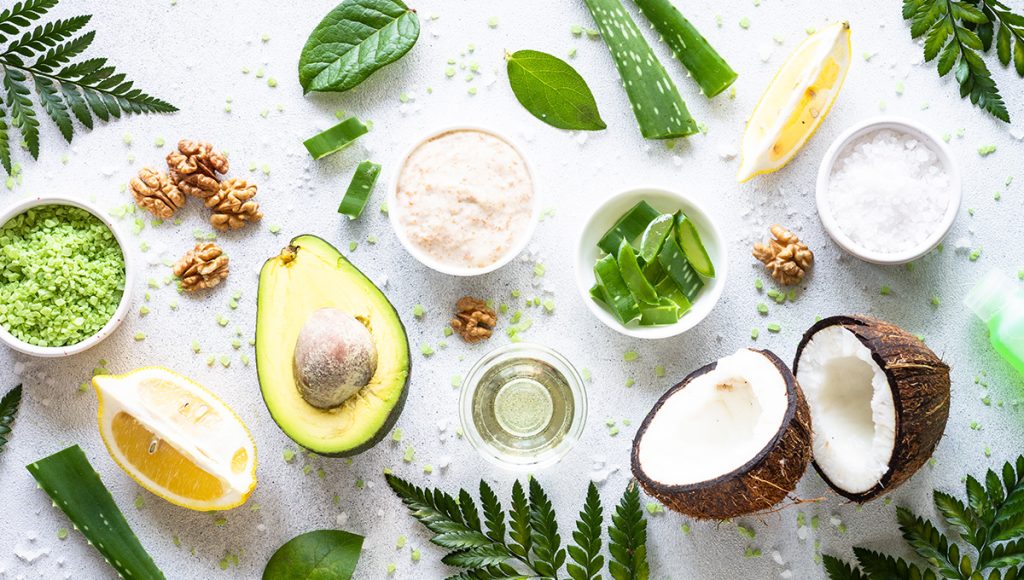
For those seeking a gentler approach, natural treatments can be highly effective for hyperpigmentation on Black skin. Now, let’s look at powerful home remedies and spotlight turmeric—a trusted natural ingredient for brightening and evening out melanin-rich skin tones.
The Power of Natural Remedies for Dark Spots
If you prefer natural methods, plenty of plant-based ingredients can help heal dark spots. Natural skin brighteners gently fade pigmentation without harsh chemicals.
Try these natural remedies:
- Aloe vera for soothing inflammation and promoting skin regeneration.
- Lemon juice (moderately) for its natural bleaching properties.
- Green tea extract for its antioxidant benefits.
- Rosehip oil to reduce dark spots over time.
These options can be incorporated into your skincare routine alongside other treatments.
Turmeric for Brightening and Even Tone
Turmeric is a well-known natural remedy for hyperpigmentation—it has powerful anti-inflammatory and antioxidant properties that help restore skin clarity.
Nasola Kojic Acid & Turmeric Skincare Bio Oil
- Combines turmeric’s brightening power with kojic acid to fade dark spots.
- Improves overall skin texture and enhances radiance.
- Lightweight and non-greasy, making it perfect for daily application.
Natural remedies like turmeric-based oils can help restore even skin tone over time.
Incorporating a Skin-Brightening Routine

A consistent skin-brightening routine is key to fading hyperpigmentation and maintaining a radiant complexion. Proper cleansing and exfoliating lay the foundation for healthier, more even-toned skin—especially for those with melanin-rich complexions.
The Importance of Cleansing and Exfoliating
A proper cleansing and exfoliating routine plays a crucial role in fading hyperpigmentation. Exfoliation speeds up cell turnover, allowing spots to fade faster.
Nasola Kojic Acid Body Wash
- Infused with kojic acid for deep skin-brightening effects.
- Helps remove dead skin cells, revealing clearer skin.
- A great daily addition to maintaining an even skin tone.
Cleansing and exfoliating properly will support your journey toward hyperpigmentation-free skin.
Moisturizing and Skin Repair

After treating dark spots, hydration is key to restoring skin health and preventing further discoloration.
Recommended Product: Nasola Ultimate Body Indulgence
- A deeply hydrating formula that nourishes and replenishes the skin.
- Helps maintain an even skin tone and improves elasticity.
- Perfect for those dealing with dry or crepey skin concerns.
Keeping your skin hydrated allows it to repair faster while enhancing an even glow.
Conclusion
Hyperpigmentation on Black skin takes time to fade, but with the right treatments and routines, visible improvements are possible. Whether you prefer dermatologist-recommended solutions, natural remedies like turmeric, or skincare essentials such as Nasola Kojic Acid Soap and Nasola Kojic Acid & Turmeric Skincare Bio Oil, consistency is key.
Invest in the right products, protect your skin from the sun, and watch your radiance shine through!
Frequently Asked Questions
Hyperpigmentation in Black skin is commonly caused by acne scars, sun exposure, eczema, and hormonal changes. Due to higher melanin levels, Black skin is more prone to developing dark spots.
Using natural ingredients like turmeric, aloe vera, and rosehip oil can help lighten dark spots. For a powerful natural option, try Nasola Kojic Acid & Turmeric Skincare Bio Oil, which combines kojic acid and turmeric to fade hyperpigmentation.
Depending on the severity, hyperpigmentation can take a few weeks to several months to fade. Using brightening treatments like Nasola Kojic Acid Soap and applying sunscreen daily can speed up the process.
Yes! Proper sun protection, avoiding skin trauma, and using gentle skincare products can help prevent dark spots from forming.
Yes, kojic acid is safe for Black skin when used correctly. It fades hyperpigmentation without causing severe irritation. Products like Nasola Kojic Acid Body Wash provide a gentle yet effective way to brighten skin tone.
Absolutely. Hydration helps skin repair itself faster and reduces inflammation that leads to dark spots. Nasola Ultimate Body Indulgence is an excellent choice for deep moisture and even skin tone.
Fading hyperpigmentation is a journey, but with the right care and patience, you can achieve glowing, even-toned skin!

